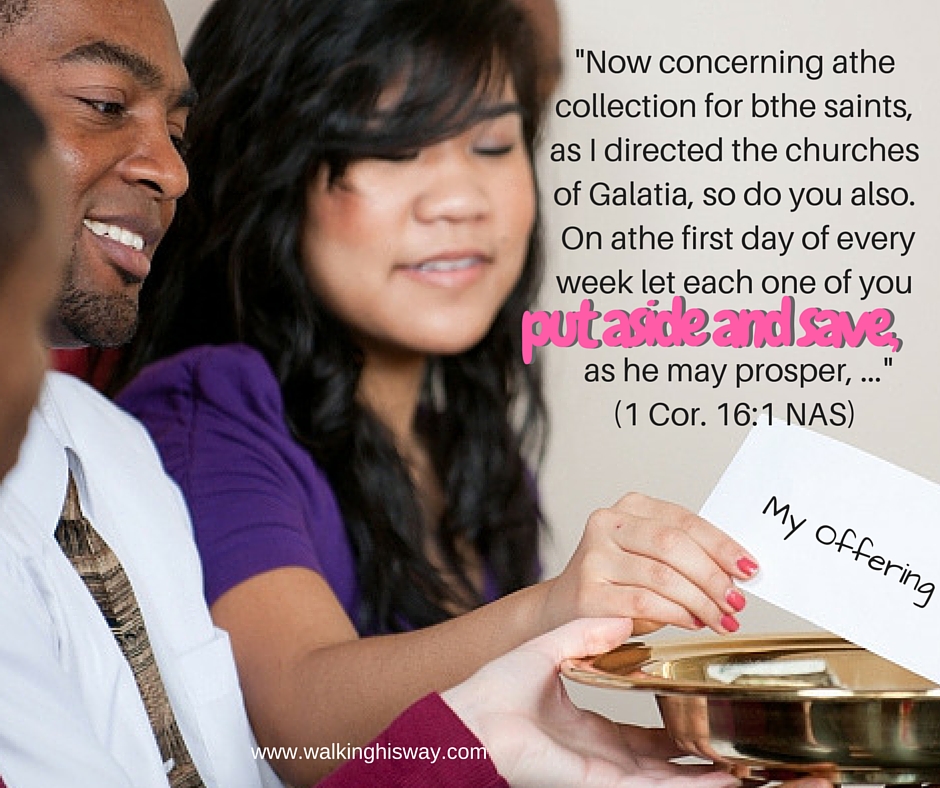 1 Cor 16:1-2 “With regard to the collection for the saints, please follow the directions that I gave to the churches of Galatia: On the first day of the week, each of you should set aside~~ some income and save it to the extent that God has blessed you, so that a collection will not have to be made when I come.”
1 Cor 16:1-2 “With regard to the collection for the saints, please follow the directions that I gave to the churches of Galatia: On the first day of the week, each of you should set aside~~ some income and save it to the extent that God has blessed you, so that a collection will not have to be made when I come.”
From the intensely rich doctrinal discussion on our resurrection (1 Cor 15), Paul goes back to the practical resurrected life. God has a plan for storing “treasures in heaven” while we remain on the earth (Matt 6:20).
The text begins, “With regard to the collection for the saints,” which implies that Paul is answering questions sent to him in a letter (as in 1 Cor 7:1; 8:1; and 12:1).
For more than a year, Paul had been teaching the churches how to respond generously to emergencies. Now he was collecting the fund for the Jerusalem church, which was suffering a famine and poverty: “For it pleased those from Macedonia and Achaia to make a certain contribution for the poor among the saints who are in Jerusalem” (Rom 15:26).
Later, Paul wrote one of the greatest commendations to a generous church: “Moreover, brethren, we make known to you…that in a great trial of affliction the abundance of their joy and their deep poverty abounded in the riches of their liberality [in giving]. For I bear witness that according to their ability, yes, and beyond their ability, they were freely willing, imploring us with much urgency that we would receive the gift and the fellowship of the ministering to the saints. And not only as we had hoped, but they first gave themselves to the Lord, and then to us by the will of God” (2 Cor 8:1–5).
Earlier, he had written principles to instruct them in a number of habitual practices. Giving should be done “on the first day of every week,” which implied both a Sunday meeting and that a planned offering was part of the worship service as a demonstration of grateful commitment to God’s work as stewards of all He has given us.
“Each of you” implies that everyone is a steward of whatever God has entrusted to him. We are all to “set aside some income and save it” in a treasury for dispensing of the offerings—that is, the church.
The amount to be given was “to the extent that God has blessed you.” Typically, the tithe has been the starting point for giving (long before the law was given). Our giving demonstrates the thankfulness that our praises declare. One without the other is null and void. Can you praise through your giving?
“Lord, why is my heart so rebellious against regularly giving to Your church and kingdom plans? Why do I love to receive benefits more than to give blessings to others? You have blessed me so much. Give me the grace to bless others as I have been blessed.”
